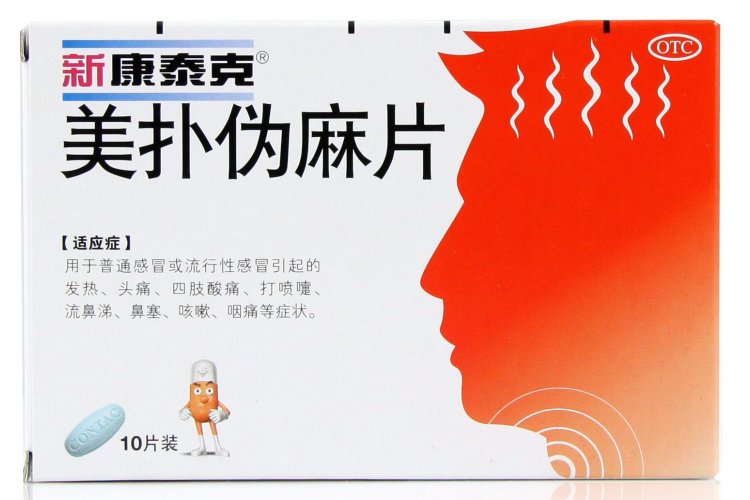Medical Insurance in Beijing: Why You Need It, and How to Get It
A trip to the doctor isn’t cheap, especially to an international hospital. Healthcare costs can be a nightmare to settle if you’re uninsured. In most expat remuneration packages, medical insurance is an attractive benefit. Students are usually covered through their institutions of higher learning, while younger students are included in their parents’ insurance.
However, as the profile of Beijing’s international community changes, with fewer traditional expats posted here by big companies, and more entrepreneurs paying expenses out of their own pockets, increasing numbers have no insurance at all. They gamble that they will stay healthy, or that they can pay for treatment if it’s needed. But it’s a risky gamble, particularly for families with children, and if you have a medical emergency, you don’t need a financial emergency at the same time.
Understanding Medical Insurance
Your employer may have an insurance scheme which you can join, or you may need to arrange your own. There are three essential questions to consider:
- What do I need? This includes an assessment of your current health status and family health history.
- What do I want? Dental, optical and maternity care are often separate from the main package.
- What can I afford? This may be the most important consideration, as premium packages offering a full range of care at the best hospitals can run into thousands of dollars.
Hospitals require a Guarantee of Payment (GOP) from incoming patients and sometimes the insurance company needs to be notified to ensure that the insured gets the medical coverage they require, and the hospital knows that the bill will be settled. Brokers can act as an intermediary between the insurance company and insured.
Evaluating Brokers and Insurance Companies
If you need to find your own insurance, a broker can help. Brokers are usually compensated through commissions taken from the premiums charged to policyholders (i.e. you) by the insurance company, so their services are free for clients. Be sure to seek out an advisor who specializes in medical insurance for expats living in China.
Though both brokers and agents act as a bridge between the client and the insurer, an agent usually represents an insurance company like Cigna, Aon, Allianz, Bupa, IMS, or Aetna. Both agents and brokers must be legally licensed to work in China.
If you currently have medical insurance but are looking to change plans, your current insurer would be the most logical place to start. However, the insurance company may not extend coverage to China, or may limit the list of hospitals you can go to. If you’re set on going to a particular facility, check the hospital’s or clinic’s website for a list of insurers they currently have direct billing relationships with.
Factors to Consider
We asked Jason Zhang, General Manager at Abacare Beijing, what was the most important factor for families newly arriving in Beijing to consider when looking at medical insurance.
“They should think about how long they expect to stay in China,” he told us. “If they’re only here for a short time, they need to check whether the plan is portable. If not, after maybe two years, they might have to do it all again. And there’s a risk that, if any health problems have arisen during that time, that they won’t be able to get insurance.”
Emergency coverage – including inpatient and emergency evacuation – is another important benefit for families. Other considerations include vaccination coverage, outpatient coverage, annual health check coverage, and the hospitals covered by the plan. Here’s a quick rundown:
Annual Limit
An annual limit is the cap on benefits that your insurer will pay in a year. If the dollar amount of covered hospitalizations, treatments, and prescriptions exceeds the annual limit, you’ll need to pay all healthcare costs for the rest of the year. Annual limits range from USD 100,000 to several million per year depending on the plan. The higher the limit, the more expensive the premium.
Annual Rate Increases
Smaller and mid-range insurers with less financial stability usually have more erratic rate increases. Some even increase the premium in response to claims. Larger, more reputable insurers have more gradual increases, both annually and with age.
Child Coverage
Medical care for children (including checkups and immunizations) is often included, but confirm this with your insurer. Families with older children who may or may not live at home as dependents may be included, but check if there are any age caps and details of the “global” part of “global insurance coverage” if your kids don’t live in China.
Discounts
Some insurers offer a family discount, which can be especially cost-effective for large families. No-claims discounts or first-year discounts are sometimes also offered, but keep in mind that a 10 percent first-year discount carries a 10 percent (plus age, plus annual) increase at renewal.
Maternity Coverage
Couples planning to conceive should note that most insurers require a waiting period of 10-12 months of paid maternity insurance before pregnancy, birth, and/or newborn coverage kick in.
Medical Evacuation
Evacuation is an essential consideration. Take a moment to think about the cost of out-of-pocket repatriation in case of an emergency. Evacuation would cover transport for essential surgery, medical treatments unavailable here, or a health epidemic. Check whether the plan covers return transportation to Beijing. Insurance for evacuation can be overkill if your primary policy covers most or all possibilities, so make sure it complements rather than overlaps existing coverage. Note that medical evacuation doesn’t necessarily cover treatment in your home country or a third location like Hong Kong.
Outpatient Treatment
Consider how often you or your dependents are likely to visit the doctor in a given year. Policies with high deductibles to minimize the cost of monthly premiums may be more cost-effective if you’re not expecting to see a doctor more than twice a year.
Pre-Existing Conditions
Some insurers will cover certain pre-existing medical conditions, but the trade-off is a higher premium. Coverage for high blood pressure or cholesterol may seem expensive, but keep in mind you’d also be covered for heart attacks.
Travel Insurance
International travel goes hand-in-hand with living in Beijing; getting travel insurance is important as a backup on your rider. This is often available as a small package when you have visitors, either through your current insurance plan or through an international hospital or clinic membership. US citizens should note that many global policies don’t cover treatment in the US or only cover it for a limited number of days (usually 30-45).
Other Factors
Additional considerations include coverage for children with special needs, deductible and copayment options, dental and visual insurance, coverage for second opinions on major treatments, and emergency protocols (e.g. whether pre-authorization is required).
In addition to health insurance, international hospitals such as Beijing United Family Hospital or primary care clinics such as Raffles Medical have memberships that offer patients additional discounts and extra services for an annual fee. These memberships can supplement company-sponsored insurance packages; they can also be appealing for expats who select packages based on low upfront fees, or those who must pay for treatment out-of-pocket.
READ: Common Scams and Tips on What to Do When Life in China Goes Wrong
This article originally appeared on our sister site beijingkids.
Photo: familydoctor.org
Related stories :
Comments
New comments are displayed first.Comments
![]() Sikaote
Submitted by Guest on Sat, 06/20/2020 - 06:02 Permalink
Sikaote
Submitted by Guest on Sat, 06/20/2020 - 06:02 Permalink
Re: Medical Insurance in Beijing: Why You Need It, and How to...
Medical Insurance in Beijing: Why You Need It
Because of the countless numbers of automobile AND scooter drivers who can't be bothered to notice pedestrians.

Validate your mobile phone number to post comments.







